- Home
- Terri Blackstock
Covenant Child Page 3
Covenant Child Read online
Page 3
I now know that it wasn’t just a dream, but probably a bona fide memory. That my father never got to that wedding, because his plane went down in a grove of trees.
When we kissed him good-bye that day, we were kissing him for the last time.
FIVE
Amanda got the call while we were napping that afternoon, and she snatched us out of bed and raced to the hospital, carrying both of us on her mad race. When she got there, she learned that my grandparents had died instantly. My father was still alive and in surgery.
I picture her sometimes, appeasing us while suffering the misery of waiting. I picture her with one whining child on each hip, pacing back and forth in front of the double doors to the operating room, assaulting each doctor who emerged with tearful questions and frightened demands. “You’ve got to do something,” I picture her saying. “Don’t you give him up! I want heroics!”
But heroics didn’t matter, not that day. My father died one hour after his parents, leaving everything unfinished—so many things undone—and thrusting my sister and me down a long, lonely road that took us to places we did not want to go.
Amanda has told us that she ran from the news down the long, cold corridor of the hospital, clutching one of us on each hip. The hall smelled of alcohol and Clorox, scents she would forevermore associate with death.
We screamed out our own fear as she fled down the stairs and out to the parking lot. She placed us into our car seats, knowing that her tears and her haste frightened us. But she was helpless to stop them.
The sun was going down as she drove home, hiccuping sobs, but when we got there, she couldn’t go in. The house was just as we’d left it earlier, but it wasn’t the same. She took us out of the car and tried to pull herself together. “Let’s not go in,” she said. “Let’s go to the playhouse.”
“Whatsa matter, Mommy?” I asked on a whisper.
Amanda couldn’t answer. “Mommy just . . . got some bad news. I just need to sit in the playhouse. But don’t worry. It’s going to be all right.”
We took her word for it and bounced around to the back lawn, to the playhouse my father had built us just three weeks before. We had helped him hammer, and the wood siding bore the scars of our work. The paint was blotchy and uneven, where we had “helped” again. He and Amanda had planned to paint over it when there was time.
But there was never time.
I’m told we went in and began playing with the plastic kitchen appliances my dad had put in there for us, next to the beanbag chairs and the bucket of Barbies on the floor.
Amanda sat out on the little porch he’d built on the playhouse, in the Cracker Barrel rocking chair he’d bought her the week before. And before she could head it off, the devastation caught up to her. She buried her face in her hands to muffle the racking anguish.
She speaks of that moment with a white face and misty eyes. He couldn’t be dead, she told herself. He had just left a little while ago. She had hugged and kissed him good-bye, and he had promised he’d see us in a couple of days. He would never have accepted death that way. He wouldn’t have left us without a fight.
“Excuse me. Mrs. Holbrooke?”
She started at the voice and looked up to see a man who had come around the house looking for her. He was a tall, thin man in a black suit and held a briefcase in his hand.
“Who are you?”
He came toward her. “Mrs. Holbrooke, I’m Robert Eubanks. Paul Holbrooke’s attorney.”
“Haven’t you heard? He’s dead.” She knew the words were cruel, but she didn’t have the energy to couch them in courtesy.
“Yes, that’s why I’m here.”
She got up then and walked out into the yard, turning her back to him. “I don’t want to talk to you. I . . . can’t right now.”
“I’m so sorry for your loss. I know how hard this must be.”
She wanted to shove those words back into his mouth and tell him he didn’t have a clue. “Please leave. My children are in the playhouse, and they haven’t been told yet.”
“I understand and I won’t keep you long. I just wanted to explain something you might not be aware of.”
“There’s got to be a better time.”
“Actually, it can’t wait, Mrs. Holbrooke. The press is going to be here soon, and you need to be told first. You see, you are the heir to the Holbrooke fortune.”
“The what?” She choked back her tears. “That’s ridiculous. I’m not the heir to anything. My husband might have been once, but he had them take him out of the will.”
“They didn’t take him out,” the lawyer said. “I understand that Jack asked for that, but his father didn’t comply. And Jack very clearly left all he owned to you, specifying that you are to raise his children in the event of his death, even though the adoption hasn’t gone through yet. When the Holbrookes died before Jack, their son inherited everything they owned. Legally, it doesn’t matter if he survived them by one minute or one hour or ten years. The moment Paul and Anne Holbrooke died, the estate belonged to Jack. And now that Jack has died, the estate passes to you.”
“I don’t want it! He wanted it to go to charity. Just sign it over to a Christian ministry. There are plenty of them who need it.”
“Well, you’re perfectly free to do whatever you choose with the estate, but you do have children to consider. I’m the one who drew up Jack’s will shortly after the two of you were married. Jack didn’t leave his estate to the children because he trusted you to handle things.”
“Jack never meant for any of us to live off of his father’s money.”
“I understand that. But the fact remains that the inheritance is yours. Mrs. Holbrooke, I know you’re not in any position to think clearly right now. Might I advise you not to make any decisions until you’ve gotten legal advice? Thousands of employees will be impacted by your choices. Even though the estate wasn’t left to the children, you and I both know that Jack left all he had to you with the expectation that you would provide for the children for the rest of their lives and give them their portion when they’re older. If you turn that inheritance away, they might resent you when they’re older. They were Paul’s grandchildren.”
She wanted to scream and break something, wanted to crawl into her bed and cover her head, wanted to climb into a plane and follow Jack into eternity.
“I know it’s a lot to take in, ma’am. This is a hard thing for me, too. But you’re about to become a very wealthy woman. You own his mansion, his cars, all of his collections. HolCorp was a privately held company. You own that, too, now.”
The declaration that might, for someone else, have eased the blow of death only left her rabidly angry. “None of that will bring my husband back!”
He looked down at his hands, and his voice softened. “No, it won’t. I’m sorry, Mrs. Holbrooke. Can I just . . . contact you later about all this?”
“I guess.”
He pulled a card out of his pocket. “Ma’am, I hope you don’t mind my suggesting that you get some security around you. Once word gets out, your life isn’t going to be the same. Mr. Holbrooke has people who could protect you and take care of the arrangements . . . Please call if you want to get in touch with them.”
“I’ll bury my husband.” The words sounded too final, like someone had stamped The End onto the fairy tale of her life. “I might need help with his parents.”
“Certainly,” he said. “I’ll take care of it.”
When he had gone, she went back to the porch and sat down on the floor, her back against the wall. She began to weep again, long, deep, racking sobs that rose on the breeze. Lizzie and I peeked out the door. “Mommy?” I asked.
Amanda reached for me and pulled me against her, then Lizzie came, too. She held us both and wept against our curls. “It’s okay, sweetie. It’s okay.” I think I remember the way she held us that day. It’s deep in my mind, buried under years of clutter. A sensation . . . a homesickness . . . like the way Amanda said she felt when my father sat next to her the
night they met. I’ve had enough awareness of it to know I was missing something . . . all those years later, when I couldn’t remember a thing.
SIX
I can just imagine the day my maternal grandparents, Eloise and Deke Krebbs, showed up at our front door.
It was the day of the funerals, and the Krebbses looked like hillbillies who’d tried to dude up for the occasion. Eloise wore a blonde, curly wig that never seemed to sit right on her head, and her massive body was stuffed into a dress two sizes too small. Deke’s scrawny body reeked of cigarette smoke, and his leathery face was that of a man who had lived too hard and aged early.
They came to the door while Amanda still had a houseful of funeral company. She was numb and exhausted and weary from well-wishers, but someone found her in the bedroom and urged her to go to the door.
She faced the Krebbses with a look that said she didn’t have the energy for one more condolent platitude. “We’re the children’s grandparents,” Eloise said in a saccharine twang. “We heard about their father’s death and came as soon as we could.”
“What?” Amanda stared. “What do you mean, their grandparents? Their grandparents were killed . . .”
“Their other grandparents,” Deke cut in. “Our daughter, Sherry, was their mother.”
She caught her breath. “Oh.”
Until that moment, Amanda had never given our mother’s parents a thought. My mother had been a teen runaway and, according to our father, had remained estranged from her parents. Our grandparents had never even met us.
“I’m Amanda Holbrooke,” she said.
“Eloise and Deke Krebbs here.” The woman offered her fingertips for a tentative handshake.
“It’s not really a good time to see the girls,” Amanda said. “It’s been a long day. Do you think you could come back tomorrow? They’re confused right now, and I haven’t had the chance to explain all this to them. I appreciate your wanting to meet them, but—”
“We’re not here to meet them.” Eloise’s sniff was clearly indignant. “We’re here to make arrangements to take them back with us.”
Amanda’s eyes flashed. “You can’t take Lizzie and Kara back with you. They’re staying with me. They need things to be as normal as possible.”
“You ain’t their mother,” the old man said. “We’re their next of kin.”
A dull ache started at the back of her neck. “I am their mother. They call me Mommy. I’m going to adopt them. My husband’s will states that I am to raise them.”
“But the adoption can’t go through without our consent. You’re only their stepmother, and we’ve come to take them back.”
“Well, you can’t have them!” She drew in a deep breath and forced herself to lower her voice. “I’m sorry. You can visit them. You can get to know them, but you’re not taking them anywhere.”
Buzz, Amanda’s father, heard the commotion from the kitchen and stepped up behind his daughter. “Is there a problem here?”
She turned her twisted face to him. “Dad, tell them. The children are mine. They think they can come and take them away from me because they gave birth to their mother.”
“We got ourselves a good lawyer,” Deke said. “He tells us that the girls belong with us, not with you.”
“You can’t be serious.” Buzz stepped around Amanda and looked hard into Deke’s face. His age and limp were eclipsed by the anger in his eyes. “Their father’s wishes were clear.”
“No court’s gonna give them to a stepparent over blood relatives. The children need to be with family.”
“But I’ve been with them for six months!” Amanda cried. “I’m all they have left that’s familiar. You can’t do this.”
“We can, and we will.”
“I think it’s time for you to leave, pal.” Buzz grabbed Deke’s arm and turned him around. Deke jerked his arm away and looked as if he might fight back, but Buzz wasn’t intimidated. “Leave, or I’ll call the police.”
“Fine!” Eloise lifted her chin, the picture of haughty arrogance. “We’ll go, but you ain’t heard the last of us. Expect a call from our lawyer.”
“My daughter has a lawyer, too.” Buzz ground the words out. “And I’ll see that she spends every penny of her inheritance to fight you people, if she has to. But you’re not taking those girls.”
“Hide and watch,” Deke called from his car. They got in and drove off, their faces smug.
That night, Amanda sat between our twin beds as we slept and wept her heart out for her husband and the simple life they had known. She cried out to God, pleading that He would intervene and stop this downhill spiral of madness. Everything seemed out of control, and she couldn’t stop the descent.
She wept long into the night, then sat on the bed we’d slept in that night and prayed over us. It was hard to tell where Lizzie’s hair ended and mine began, or which legs were hers and which mine. We slept as if we were connected somehow, and of course we were. Lizzie and I, though separate, seemed conjoined at the heart.
Finally, Amanda lay down on the empty twin bed, unable to go back into the bedroom where she had slept with her husband, for she couldn’t yet accept that he wasn’t in that bed.
She could hear her father’s gentle snoring from the couch in the living room and, lulled by that sound, she fell into a restless sleep.
Through the fog of her mourning, Amanda took special care in explaining death to Lizzie and me. We’re told that we cried for him often during the first few weeks, and threw several tantrums, which usually ended in sad, hiccuping sleep. Amanda didn’t leave our sides. She slept with us at night, comforted us when we woke with disturbing dreams and distressing thoughts, and often she explained to us how the angels had come to get our daddy and taken him up to be with Jesus.
She later said that, in the privacy of her own thoughts, she raged at any angels who would fulfill such a task, and wondered why God had not ordered them to rescue our father out of the crash.
I’ve seen snapshots of us during that time of grieving. Amanda’s smiles look laced with sorrow. She grew thin and pale, and her eyes bore dark circles that spoke of sleepless nights.
When Lizzie’s and my sadness turned to the resilient childish laughter and fun that hit between our moments of grief, we ran around flapping our wings like the angels who had taken our father away.
Amanda talked to us of heaven and read to us from Revelation, how the streets there were made of gold, with a sea of glass and the colors of every precious stone, and gates made of enormous pearls. She told us how we would see our daddy again when we went to heaven, that he was there because he believed in Jesus. And she told us that, if we believed, we would see him again, too. So we busied ourselves with coloring pictures of Jesus and the cross, and lying in the grass looking up at the sky for glimpses of Jesus or our daddy, and wondering when we could join him.
As she buried herself in her family, Amanda kept her phone unplugged and stopped answering the door. She planted a security guard in her front yard to keep media and gawkers away. Her father stayed there with us, returning calls about the grandparents, who had already filed papers to get custody of us, and talking to the lawyer about the obscure lawsuits filed by distant Holbrooke relatives who wanted portions of the inheritance.
As the weeks went by, healing came for us, though the pall still held over Amanda.
She would later say our laughter was a healing balm for her soul, and when we napped or slept at night, she would hide herself in the Word, soaking it up like the living water promised to the Woman at the Well. It filled her spirit and her soul, and she found herself dwelling often on the day she would go home to heaven and see Jack once again, dressed in a flannel shirt, playing guitar, with his favorite sneakers on his feet and a chocolate milkshake in a plastic cup beside him. She anticipated God’s perfect reason for her pain . . . some unfathomable purpose that made her sacrifice worth it.
But the thought of Eloise and Deke Krebbs, and the threat they were to us, never lef
t her mind, and she knew that more heartache could be just over the horizon.
SEVEN
When a court date was set to decide our custody, Amanda went to see Robert Eubanks, the lawyer who had visited her on the day of my father’s death. He didn’t offer her the hope she wanted.
“The truth is, you have no legal right to Lizzie and Kara.”
Amanda stared at him. She had gone to his office in hopes of getting closure on both the custody and the adoption. It was just a matter of paperwork, she’d told herself. The Krebbses couldn’t have a right to us.
“Whose side are you on?” she asked. “Those are my girls. They call me Mommy. I’m the only mother they’ve ever known, and the only parent they have left. I promised my husband that I would take care of them for the rest of my life.”
His compassionate eyes rested on her, and she knew her words did matter to him. He rose, drawing in a long sigh. He was a tall, lanky man, who looked awkward in his own skin.
“If you’d had them since birth, there might be a chance,” Robert said gently, “but you’ve only had them a few months.”
“But can’t we prove those people are unfit to take them?” She clutched the edge of her seat so hard that her knuckles turned white. “I got a cold feeling just looking at those people, even before I knew why they were there. Maybe they heard about the inheritance and they think they can get something out of me.” Her eyebrows shot up at the thought. “In fact, take some of that money I’m supposed to have and bribe them. Offer them a settlement to drop the suit.”
“That might work,” he said, “if we had access to the money. But until probate—”
She sprang up out of her chair and stormed across the room. “How could any right-minded judge wrench those children from their home? Their only security? Especially when my husband’s will named me as their legal guardian? And after he started the adoption process himself?”
“The Krebbses do have the blood rights, and since the adoption wasn’t final—”

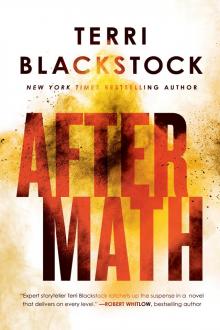 Aftermath
Aftermath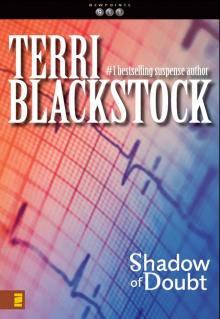 Shadow of Doubt
Shadow of Doubt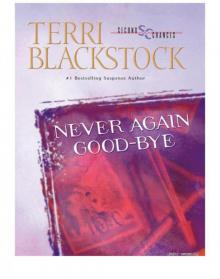 Second Chance - 05 - Never Again Good-Bye
Second Chance - 05 - Never Again Good-Bye Miracles
Miracles Broken Wings
Broken Wings the Cape Refuge (Cape Refuge Series Book 1)
the Cape Refuge (Cape Refuge Series Book 1) Shadow in Serenity
Shadow in Serenity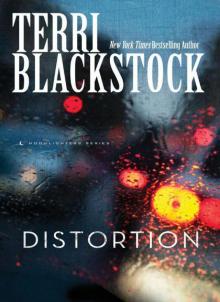 Distortion (Moonlighters Series)
Distortion (Moonlighters Series)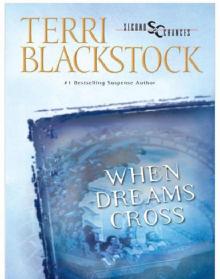 Second Chance - 02 - When Dreams Cross
Second Chance - 02 - When Dreams Cross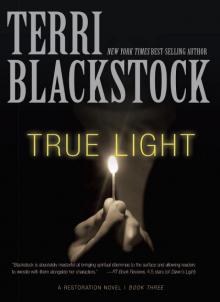 True Light
True Light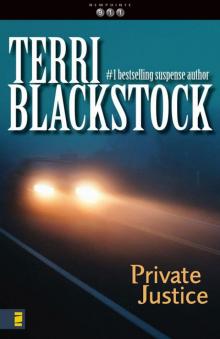 Private Justice
Private Justice Last Light
Last Light Downfall (An Intervention Novel)
Downfall (An Intervention Novel)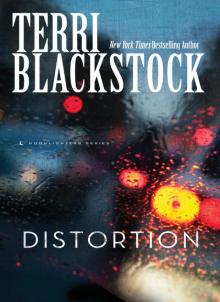 Distortion: Moonlighters Series: Book Two
Distortion: Moonlighters Series: Book Two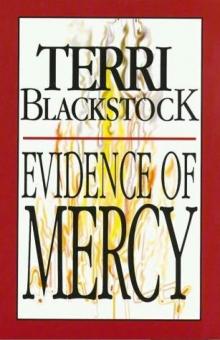 Evidence of Mercy
Evidence of Mercy If I Run
If I Run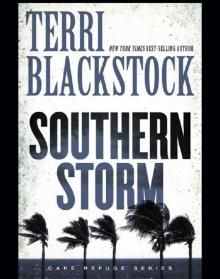 Southern Storm
Southern Storm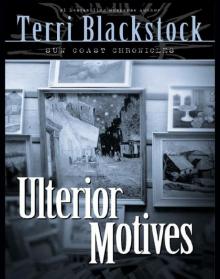 Ulterior Motives
Ulterior Motives Emerald Windows
Emerald Windows River's Edge
River's Edge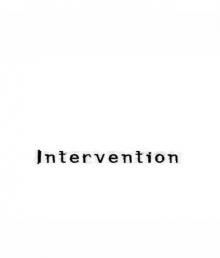 Intervention
Intervention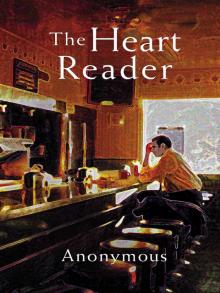 The Heart Reader
The Heart Reader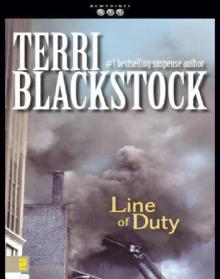 Line of Duty
Line of Duty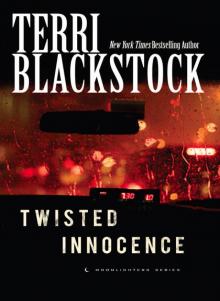 Twisted Innocence
Twisted Innocence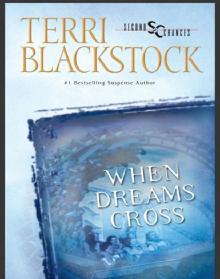 When Dreams Cross
When Dreams Cross Downfall
Downfall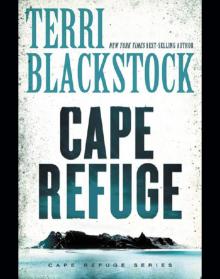 Cape Refuge
Cape Refuge Breaker's Reef
Breaker's Reef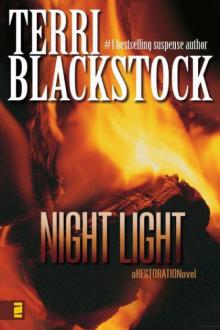 Night Light
Night Light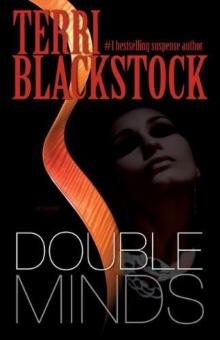 Double Minds
Double Minds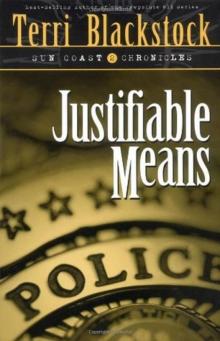 Justifiable Means
Justifiable Means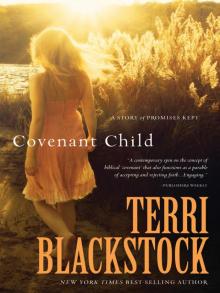 Covenant Child
Covenant Child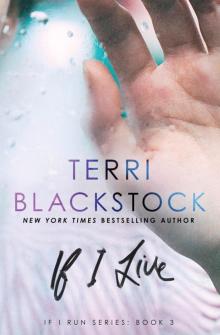 If I Live
If I Live If I'm Found
If I'm Found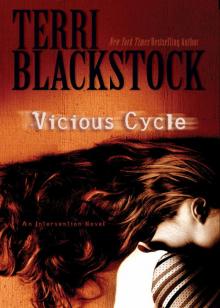 Vicious Cycle
Vicious Cycle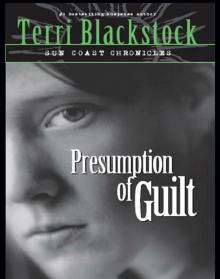 Presumption of Guilt
Presumption of Guilt Trial by Fire
Trial by Fire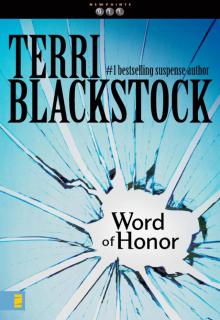 Word of Honor
Word of Honor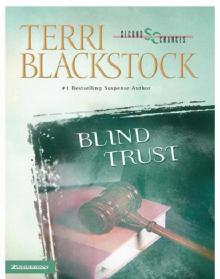 Second Chance - 03 - Blind Trust
Second Chance - 03 - Blind Trust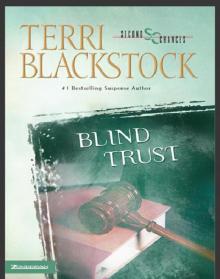 Blind Trust
Blind Trust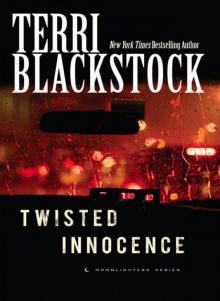 Twisted Innocence (Moonlighters Series Book 3)
Twisted Innocence (Moonlighters Series Book 3)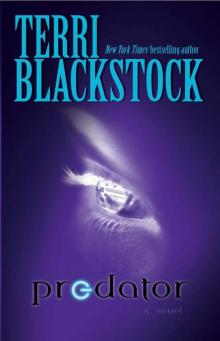 Predator
Predator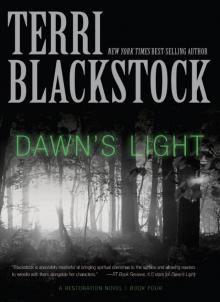 Dawn's Light
Dawn's Light Chance of Loving You
Chance of Loving You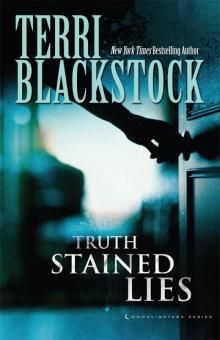 Truth-Stained Lies
Truth-Stained Lies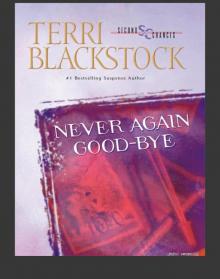 Never Again Good-Bye
Never Again Good-Bye Catching Christmas
Catching Christmas